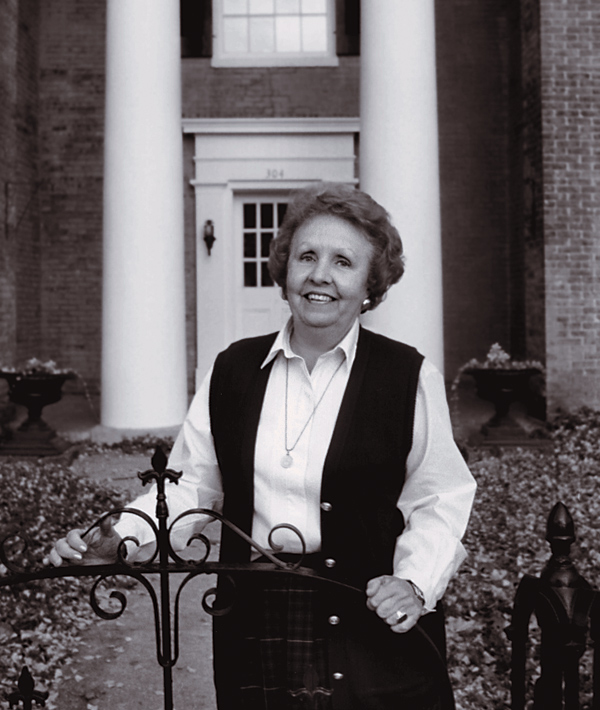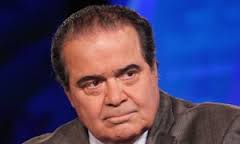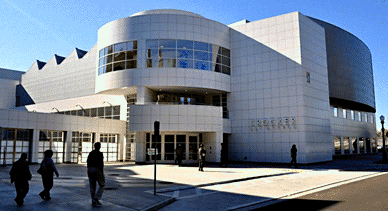(Delivered today at the memorial service for S B Clark, Lexington Avenue Baptist Church, Danville, Kentucky.)
When Dana and I arrived from Ohio nearly 25 years ago, we set about finding a building in downtown Danville. After the memorable experience of our first Kentucky real estate auction, the next thing on our list was to join the Chamber of Commerce. That was the day we met Shirley B. Clark.
She did more than just welcome us. She did more than reassure us that we had chosen an exceptional city. Shirley cultivated in both of us a strong belief that the community needed us as much as we needed Danville. She fanned a flame that would grow and merge with a spirit of community involvement. She had that special capacity, because she knew that the vitality of a community was more than making things happen and getting things done. She understood deeply that the spirit of a community was about people — especially people who believed in achieving something new, whether they got the credit or not, and who thrived on the pleasure of working with others who felt the same way. We saw this in the way she went about her own activities and how she made a catalytic effort on behalf of one organization or project after another — quietly, persistently, with her characteristic unflappable manner, and with her distinctive good cheer.
I’ll always remember her professional introduction to our adopted home town, but I don’t recall a time when I didn’t feel that she was my friend. It was clear from the beginning that she cared about my success as an entrepreneur, as an artist, and as a person who aspired to do well by others and the community. I would not be surprised to learn that she made everyone with whom she collaborated feel the same way.
As the years passed, we locked arms on many volunteer efforts — at the Chamber, for the Band Festival, as members of the Rotary Club, or with what would become, perhaps, our most meaningful shared cause, the Salvation Army. Whenever we put our imaginations and heads together, I came to appreciate even more how much Shirley loved her community, how she could foster that same devotion in others by her example — by how she got results with a steady, practical approach — and by her positive spirit of always trying to do the most good she could in any situation in which she gave of herself.
Shirley and I often shared similar concerns about community issues. Even when the stakes were high, she had a much better way of seeing the amusing side of it all, and this would help me keep things in perspective. I remember lots of comfortable laughter, even if the details have faded, as they usually do.
I remember times, years later, when we would ride back downtown together after a Friday Rotary lunch, discussing current initiatives at the Salvation Army. Then we would sit and talk in my driveway far too long, and, eventually, we’d stop and laugh, because I think we both realized that we’d become pals, and, if left to our own devices, we might gab the afternoon away. Although both of us were clearly out of the loop on weighty matters by then, we enjoyed being together to unravel all the challenges that faced our local economy.
I came to value Shirley’s sound priorities and keen insight, and to respect her as both a caring heart and a very savvy individual. She understood the dynamics of all the types of personalities that make a community tick. She was a marvelously thoughtful person, always full of encouragement, and she had that important trait required of all good ambassadors — diplomacy. In my opinion, her role in paving the way, with executive finesse, for so many constructive accomplishments, is largely unsung. Danville has lost one of its great champions.
Shirley’s regard for our community was rooted in her love of people. We all shall miss her presence. I shall miss her friendship.

Shirley B. Clark
1935 – 2013



 because those who framed the Bill of Rights did not find the deterrent a bad precaution, as tiresome as it may seem at times.
because those who framed the Bill of Rights did not find the deterrent a bad precaution, as tiresome as it may seem at times.



